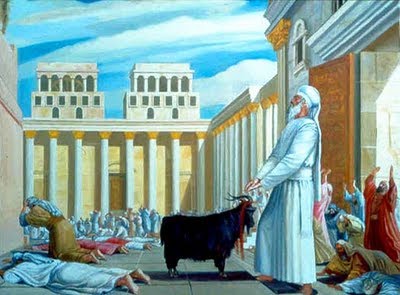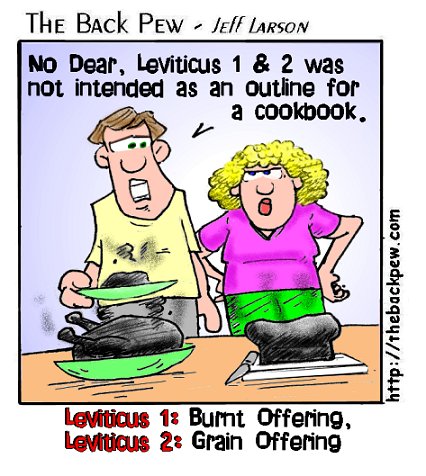Bonjour / Hello [nickname_else_first_name],
Table of contents
1) Perashat Hashavoua - Rabbi Eli Mansour
2) Halakhat Hashavoua (Halakhot related to day to day life) By Hazzan David Azerad -
-Laws pertaining to Pesah Dishes
3) Holy Jokes!
1)PERASHAT HASHAVOUA
This Week's Parasha Insight with Rabbi Eli Mansour
Parashat Pekudeh- Counting the Things That Matter
Parashat Pekudeh begins with the accounting prepared by Moshe of the gold, silver and copper that Beneh Yisrael donated to the Mishkan. The Torah here specifies the amounts that were given, and what they were used for. This section begins with the words, "Eleh Fekudeh Ha’Mishkan" – literally, "These are the countings of the Mishkan…"
The Or Ha’haim Ha’kadosh (Rav Haim Ben-Attar, 1696-1743) notes that the first word in this verse is "Eleh" ("These"), and not "Ve’eleh" – "And these." In other contexts, the Rabbis teach that when the Torah writes "Eleh," without adding the "Vav" to connect the verse with the preceding verses, the Torah intends "Li’fsol Et Ha’rishonim" – to exclude the previous verses. Meaning, the word "Eleh," as opposed to "Ve’eleh," implies exclusion, that the matter discussed in this context differs from that which is discussed elsewhere.
Accordingly, the Or Ha’haim writes, the phrase "Eleh Fekudeh Ha’Mishkan" serves to exclude all other countings. Only the counting of the materials donated for the Mishkan has value and importance; the counting of everything else is unimportant. When people count their money and material assets, the Or Ha’haim writes, this is not a significant counting, because our material possessions are only temporary. The Or Ha’haim notes that the word "Mammon" (money) means "Ma Ata Moneh" – "What are you counting?" The word itself speaks of the transient nature of wealth, how money does not remain with us, such that it does not truly deserve to be counted. Similarly, the Aramaic word for money is "Zuz," which means "move," as money is always moving from one person to the next. There is something futile about counting our money, because it will not remain with us forever.
If we are going to count something, we should be counting that which we "donate" to the "Mishkan" – the Misvot that we perform, the Torah that we learn, and the charity that we give. These spiritual assets remain with us for all eternity, and so they are truly worthy of being counted. Our most important possessions are not the money we’ve earned and physical possessions that we’ve amassed, but rather our spiritual possessions – all the good that we do, which is everlasting, and thus the only true, valuable "assets" that we own.
2) HALAKHAT HASHAVOUA
Halachot this week are selected and Translated by Hazzan David Azerad
Pesach Laws according to the rulings of Rabbi Obadiah Yosef ZT”L
Is it necessary to have a separate set of dishes for Passover?
Since the dishes that we use during the year for leavened foods, has Chametz absorbed within them, we cannot use them on Passover, unless we draw out the leaven in them. Whomever is able to set apart a special set of dishes for Pesach is welcome to do so. He should keep all the chametz dishes that he used during the year in a special cabinet, seal it and write "Kli chametz" on it, lest they make the mistake of using them on Pesach. Although not every person has the option of setting up an additional set of dishes, therefore, one must know the details of Kosherizing dishes.
Which dishes need to be Kosherized before Pesach?
Utensils that are used to cook something with liquid, such as a pot in which soup or food with sauce is cooked - because the dishes absorbed the chametz through boiling moisture, they also become kosher by the boiling water. That is, to boil water in a vessel, and when the water is bubbling, one puts the vessel with the handles and the lid into the water, and then the Chametz is drawn out. And this is what is called: "Hagaala”.
Before cleaning, one should clean all utensils, pots etc… thoroughly with detergents, and remove all dirt and rust from it, and clean the handles. A way to Kosherize a very large pot is to fill it with water until the top and boil it in such a way that the water reaches the entire rim of the vessel and spills out.
Bevirkat Shabbat Shalom Umevoravh
David Azerad
3) HOLY JoKeS!!
Selection of funny snippets, loosely related to this weeks parashah or current events, to brighten your day
What type of sweater does a police officer wear?
A PULL OVER!
What type of jacket does a firefighter wear?
A BLAZER!
What type of pants does a DNA specialist wear?
JEANS!
And finally, what does a lawyer wear to court?
A LAW-SUIT!














